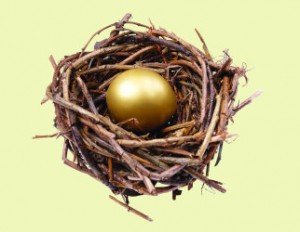RRSP Q&A: Not paying income tax this year — should I withdraw?
Answers to your RRSP questions.
Advertisement
Answers to your RRSP questions.

From February 16 to 19, 2010, MoneySense.ca’s top financial planners are answering your RRSP questions. For the full list of questions answered — or to submit a question of your own — click here.
I am 30 years old, single, recently finished graduate school, and currently unemployed. I spent an extended period of time in university for my degrees throughout my 20s, so I had very low income and paid no income tax during those years.
I have $10,000 in my RRSP (contributed in a particular year with a high income), and the entire amount is in a monthly income balanced mutual fund that has a 3% — 3.5% return per year. I have never taken any money out under LLP or HBP. I also have accumulated $20,000 of RRSP contribution room for future use. I have contributed $10,000 to my TFSA ($5,000 in each of 2009 and 2010) and it is currently in a high-rate savings account that pays 3% per year.
Should I keep my $10,000 in RRSPs and stay put for another 35 – 40 years, or should I take it out while I still pay no income tax this year, and move the money to TFSA in future years? If I keep my money in an RRSP, should I keep it in a monthly income fund as is, or switch it to the Couch Potato, or something else? — W.H.
Barbara Garbens: You are a good saver. Even though you are in a low bracket, I’d be inclined to leave the RRSP money sheltered. Remember that you will lose the room if you withdraw and it will not be reinstated. Also, withdrawing from an RRSP may impact certain means tested calculations and their benefits to which you might be entitled such as the property tax credit (if you rent).
Even though your income is low or nil during 2010 and you will pay little or no tax, RRSP’s are a cornerstone of retirement and will supplement any pensions that you will eventually collect. You don’t say how much you expect to earn in the future. I can only assume that your earnings will be such that you will be able to continue to accrue RRSP room and will be able to make those contributions. However, if you need the money, you may have no choice but to withdraw. I would however withdraw money from the TFSA first since you can re-contribute it if you have the means.
In terms of investing the money, if you think that you will be withdrawing it soon, then you must keep it in a low volatility investment so that it will not be subject to market fluctuations at the time of withdrawal. If you decide not to touch it, an equity component is a good idea. You will be positioned for long term growth and will also have a hedge against inflation. See an investment advisor to help you work through risk tolerance and asset mix questions.
Next question: Is a TFSA better than an RRSP?
Have a different opinion? Let us know in the comments.
Share this article Share on Facebook Share on Twitter Share on Linkedin Share on Reddit Share on Email